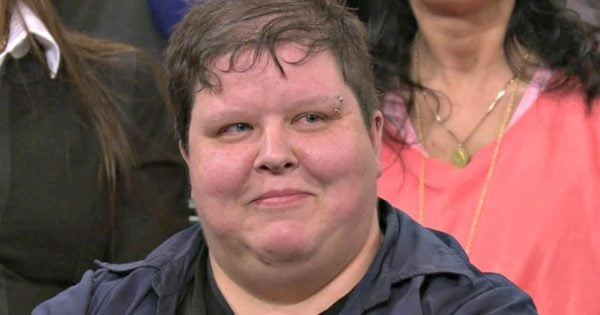It is only with an adult’s understanding that I see anything unusual about the fact that there was a 25-year age gap between my parents, or that Dad was 53 when I was born.
Dad was just Dad.
Reflecting back with this adult’s perspective, however, there was a lot that was really wonderful about having an older father:
By the time I came along, Dad had already established his career and therefore didn’t have the ‘How am I going to support my family emotionally and financially while also realising my career ambitions?’ conflict I see in many of my friends who became parents in their twenties and thirties. He’d been there, done that.
Margaret as a toddler with her father. (Supplied)
In fact, I think he felt that he had missed out on relishing the childhoods of his older children because he was so focussed, at the time, on building his business and making a living. This meant he made an active effort to be present in my life and treasure my childhood. He often said I kept him young, and I have lots of wonderful memories of heading down to the beach with Dad after school and playing kick to kick with him in the park every weekend.
Being older, Dad had a very strong sense of what was important in life and how to be in the world. You could say that he, quite literally, had the wisdom that comes with age and experience; wisdom and experience that he made an active effort to share with me. To this day, when faced with a difficult situation, I find myself referencing one of the many life philosophies Dad imparted over the years. And it is these philosophical discussions – where Dad would encourage me to forge my own beliefs while learning from his – that I miss most.
Given that I speak so glowingly about my experience of growing up with an older father, it would be easy to assume that I would fully support people who wish to become parents later in life


Top Comments
Hmmm, isn't the experience of geriatric fatherhood this father had the one that grandparents get to enjoy?
My thoughts exactly.
Oh, I couldn't agree more! Having lost a parent as a teenager, I always consider the issue from the child's perspective. You are just less likely to see the child through to adulthood if you have that child later in life. It's not fair because to lose a parent while you are young is so much harder.